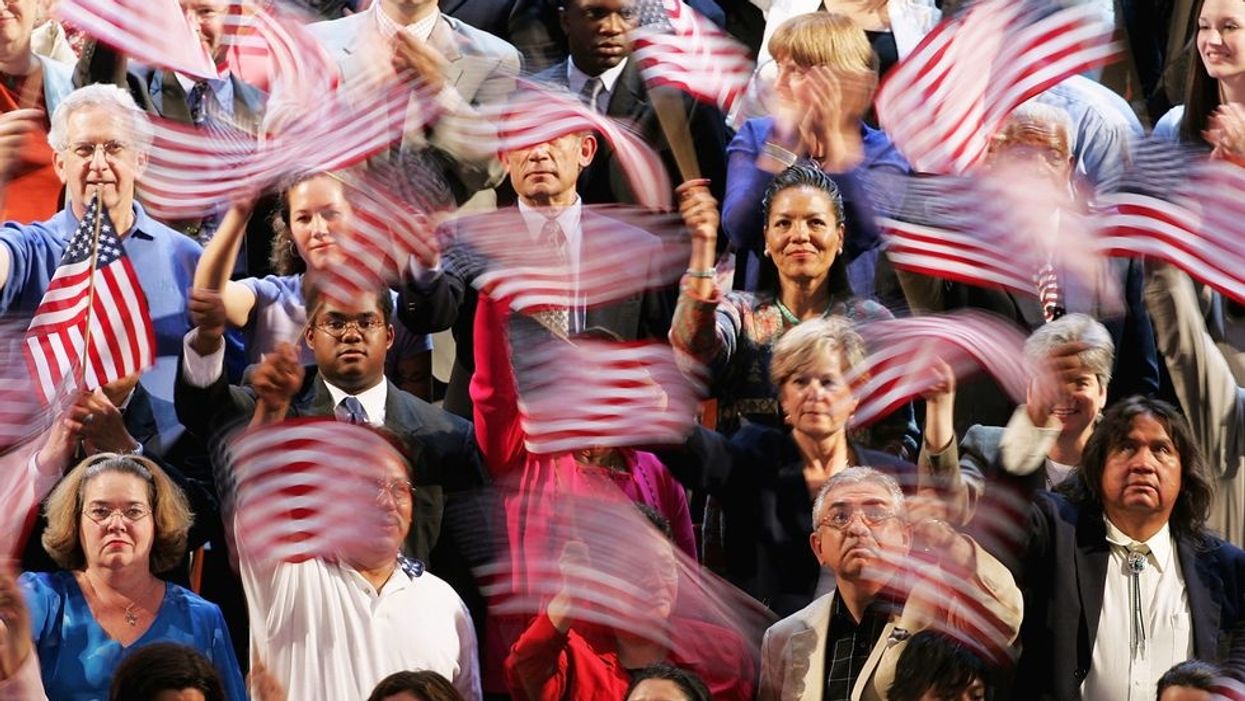Talisse is a philosophy professor at Vanderbilt University.
Democracy is hard work. If it is to function well, citizens must do a lot of thinking and talking about politics. But democracy is demanding in another way as well. It requires us to maintain a peculiar moral posture toward our fellow citizens. We must acknowledge that they're our equals and thus entitled to an equal say, even when their views are severely misguided. It seems a lot to ask.
To appreciate the demand's weight, consider that a citizen's duty is to promote justice. Accordingly, we tend to regard our political opposition as being not merely on the wrong side of the issues, but on an unjust side. Citizens of a democracy must pursue justice while also affirming that their fellow citizens are entitled to equal power even when they favor injustice. What's more, citizens are obligated to acknowledge that, under certain conditions, it is right for government to enact their opposition's will. This looks like a requirement to be complicit with injustice. That's quite a burden.
To be sure, the demand is not altogether unconstrained. For one thing, citizens need not respect every kind of political opponent. Although the boundaries are contested, there are limits to what counts as a valid political opinion. For example, citizens aren't required to respect those who call for the absolute subordination of one portion of the citizenry to another. Furthermore, no citizen is ever required simply to submit to the popular will. In the wake of electoral defeat, we need not quietly resign; we are constitutionally entitled to criticize and protest the outcome.
Although these consolations may make the moral demand of citizenship more bearable, it remains onerous. When it comes to debates over crucial matters like health care, taxation and immigration, there are several valid yet opposed opinions, many of which will strike some citizens as unacceptable. When such views prevail, government is right to implement them, despite the fact that many citizens assess them as unjust. Democracy gives an equal voice even to citizens who favor injustice, even after an electoral or policy defeat.
Put simply, it is not easy to regard those who promote injustice as one's equals, rather than as obstacles to nullify. However, this awkward posture is fundamental to the democratic enterprise. If we give it up, we cede the idea of self-government among equals to a view of politics as, at best, a cold civil war.
Perhaps democracy simply asks too much of us. Though tempting, this conclusion is hasty. To see how we can meet democracy's demand, we can look to the widespread practice of religious toleration.
Many religious believers embrace the following posture. They hold that salvation is the highest goal of life and is available only to those within their own faith community; they additionally recognize an obligation to assist others in achieving salvation. Yet they also hold that matters of conviction must be left to the individual. This means that it would be wrong to force others to perform the correct religious observances or to forbid improper religiosity. Thus a conflict: Despite taking salvation to be paramount, the tolerant believer leaves others to their own spiritual devices even though this may result in their ruin.
This conflict is eased by an underlying conception of conscience. Tolerant believers see religious conviction as an exercise of the human conscience. Accordingly, they can regard those who hold opposing religious views as more than their erroneous convictions. Despite their grave theological errors, they, too, endeavor to live according to their best judgment. Tolerant believers hence see even in the heretic something that they also see in themselves — a common aspiration to live well. In this they find a basis for toleration.
The key is the refusal to regard religious conviction as the entirety of a person's identity. For the tolerant believer, the quest for salvation is pursued within the common horizon of human conscience. It is not easy, but religious toleration is nevertheless widely practiced and wholeheartedly embraced.
The lesson for citizens is clear. To sustain the moral posture that democracy demands, we must refuse to see partisan affiliation as the defining trait of our fellow citizens. Alas, this is easier said than done. As I document in "Overdoing Democracy," politics has infiltrated the whole of social life. Not only do we increasingly interact only with those who share our politics, we also have become more prone to take those who are politically unlike ourselves to be irredeemably depraved, benighted and dangerous. By placing our partisan identities at the center of nearly everything we do, we have eroded the conditions under which we can regard our fellow citizens as our equals. As a result, democracy is swiftly devolving.
The proper response is to participate in cooperative endeavors in which partisan identity is irrelevant. Activities of this kind are needed, not because we must be perpetually reaching across our political divides, but rather because if we are to perform well as democratic citizens, we need to see in our fellow citizens something beyond partisan affiliation, something like a common quest to live a valuable life.
In short, democracy needs us to acknowledge that there's more to our shared life than politics. This acknowledgement does not neutralize the conflict at the heart of democratic citizenship — we still must bear the burden of our fellow citizens' equality. But it does help us to navigate that conflict in a way that is consistent with a commitment to a robustly democratic society.



















